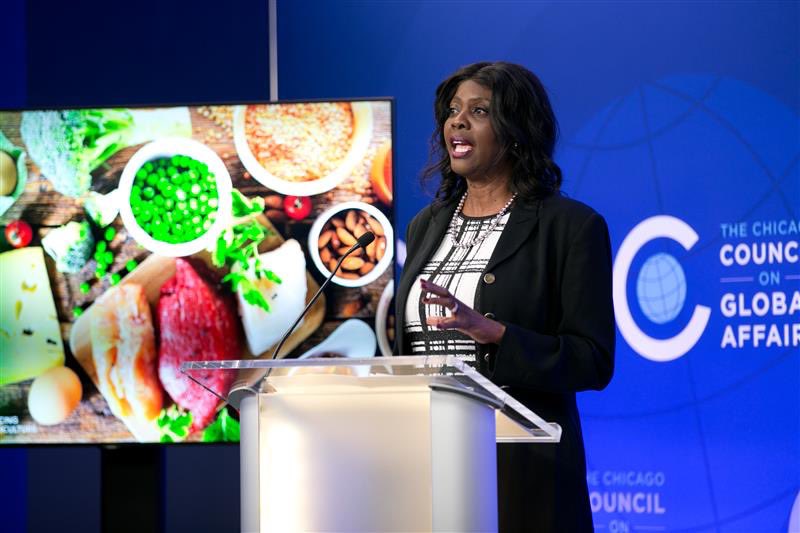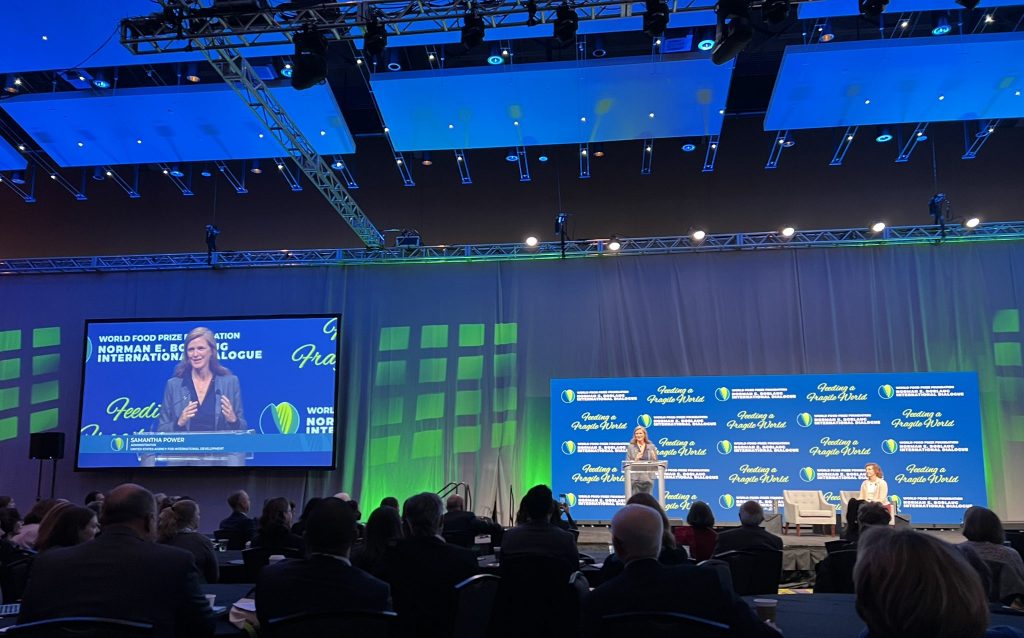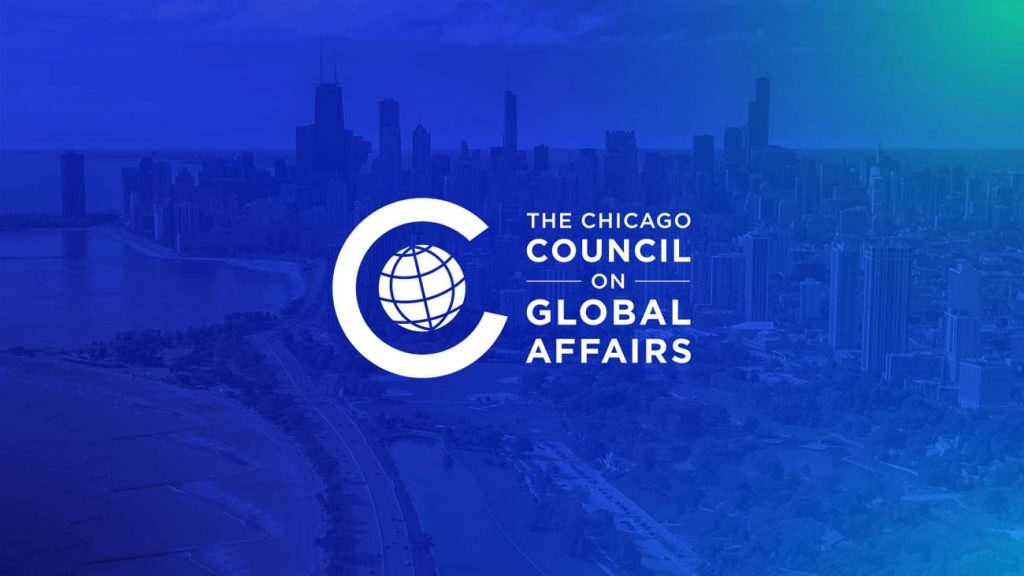marHaba yaa Tulaab! My name is Natalie Burdsall and I am a recent graduate of Loyola’s Arabic program, and former Arabic tutor and American sign Language coach. I graduated summa cum laude in May 2022 with BAs in Global Studies and Communication Studies, and minors in Arabic Language and Culture and Islamic World Studies. Shortly after graduation, I started working as the Communications Officer for the Chicago Council on Global Affairs’ Center on Global Food and Agriculture. As I quickly approach my one year anniversary of working with the Council, I have found myself reflecting on my time in the Arabic program and all of the skills it gave me that allow me to be successful in my position.
The Chicago Council on Global Affairs is a non-partisan, non-profit think tank dedicated to increasing knowledge and engagement in global affairs, while empowering people to help shape our global future. The Center on Global Food and Agriculture is one of three research centers within the Council, and specifically drives change towards a more sustainable and resilient food system. As the center’s communications officer, I focus on promoting the work and impact of the center to deepen public engagement in global food and agriculture, while helping bring the Council’s digital transformation to fruition.
When I first started my position, I was terrified. Departing from the comforts of academia was no easy feat, and left me feeling like a fish out of water. How was I supposed to transition from what I spent my entire life doing–writing papers, listening to lectures, submitting assignments–to a nine to five job that lacked the safety net of homework extensions and kind professors? How was I supposed to apply the knowledge I spent my whole life obtaining, when there was no clear road map to success? There was only one way to find out: jumping right in.

During my first week at the Council, I quickly learned that I was not completely out of my comfort zone, as I first felt. I had years of experience working for other non-profit organizations that certainly gave me a foundation for success, but what I found myself most often turning to were the skills I learned through Loyola’s Arabic program. Studying Arabic, a language that was initially completely foreign to me, taught me how to commit myself to an arduous task where failure was a natural part of the journey to success. The hours I spent studying for exams, practicing with other students and tutors, and, most of all, making mistakes, helped me learn how to be persistent and taught me the value of failure. It gave me the ability to recognize opportunities for growth in my mistakes–a necessary skill, in the workforce–and is the reason I was able to make it through my first week with the Council, and now almost my first year.
Beyond skills of persistence in the face of failure, the Arabic program also provided me with a wealth of knowledge immensely helpful to understanding the agricultural landscape of regions around the world, especially the Middle East and North Africa. Studying the geography, culture, and dialects of countries in the Middle East and North Africa in class provided me with vital context for food and agriculture news, allowing me to better facilitate cross-cultural conversations when promoting the Council’s work. Coupled with my ability to understand some written and spoken Arabic, I can more adeptly navigate language barriers and puzzle my way through news communicated in Arabic, allowing me to verify sources translated into English and expand the number of news organizations we can source from.

My most valuable takeaway from the Arabic program has implications that reach far beyond the classroom, and affects how I do my job every single day; learning about a non-Western language and cultures actively counteracted the imperialist narratives baked into Western education. Rather than continuing to passively promote an imperialist reading of the world, the Arabic program gracefully challenges it, and presents new viewpoints that are often suppressed or are underrepresented. With ustaadha Sawsan’s encouragement and welcoming demeanor, our class became a safe space to explore new ideas and ways of seeing the world, expanding how I view the world and the people who inhabit it. I strive to embody this way of seeing the world through evaluating who creates and consumes the Council’s content, and ensuring it is accessible for all audiences. There is substantial room for improvement in how I do my job and how I challenge imperialist narratives, but thanks to the Arabic program I now have the tools to continue this growth personally and professionally.
Loyola’s Arabic program is truly one of a kind. It enhances learning in every sense of the word, and creates a space safe for all students to engage with the material in a plethora of different ways. It allowed me to learn and develop skills that I use every day in my professional life, and can do the same for you, if you let it.
To learn more about the Council and its Center on Global Food and Agriculture, visit www.globalaffairs.org/globalagdev, or follow us on Twitter (@GlobalAgDev) and Facebook (Center on Global Food and Agriculture).


